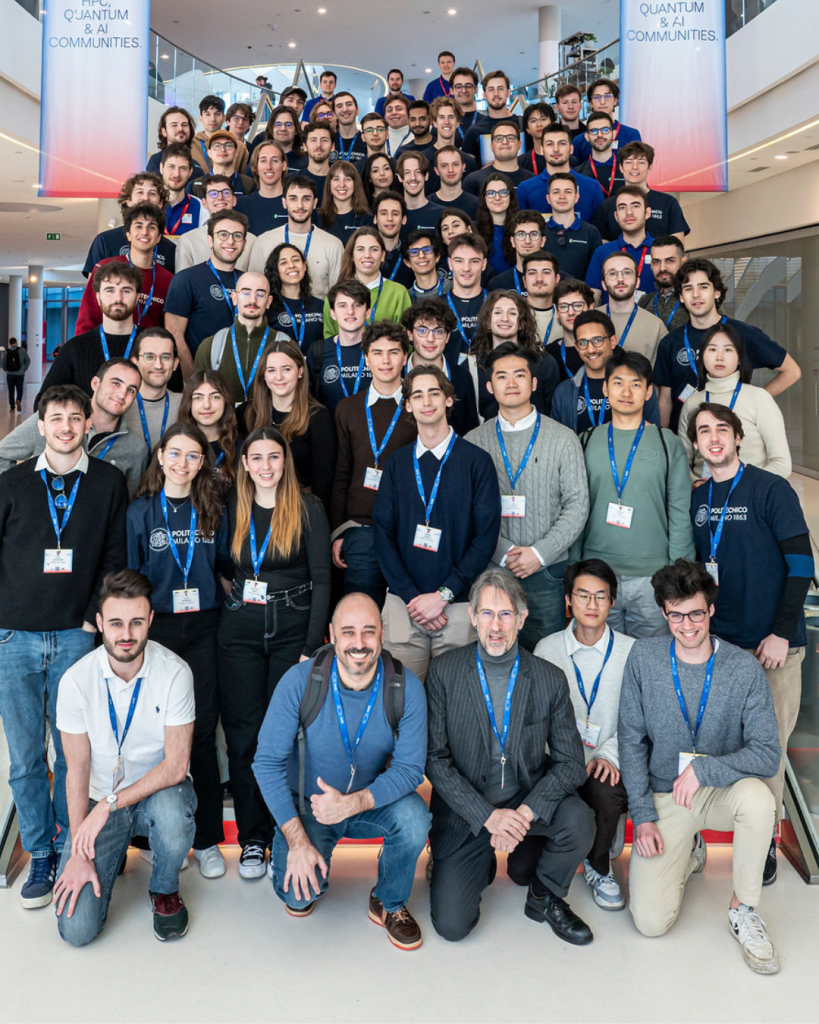Master of Science
High Performance Computing
Engineering
High Performance Computing (HPC) Engineers are highly specialised experts who
- design, develop, and optimise advanced computational solutions to address complex challenges across scientific, industrial, and technological fields;
- work across the entire supercomputing pipeline: from the mathematical modelling of physical phenomena or real-world data to the development of high-performance software capable of running on parallel, distributed architectures, all the way to the latest quantum systems;
- integrate numerical and computer science skills simulate complex systems, analyse big data, optimise code for advanced computing infrastructures, and implement data science, artificial intelligence, and deep learning models in high-computational-intensity environments, including the latest quantum computing platforms.
Accelerate the future: study HPC Engineering at Polimi!

Degree
HPC Engineering
Degree Class
LM-32 Computer Systems Engineering
Duration
2 years, 120 credits
Campus
Milano Leonardo
Language
English
The Programme
The structure of the Study Programme reflects the aim of training engineers capable of tackling complex problems through the integrated use of mathematical, computer science, and engineering skills, with particular attention to technological and scientific innovation, solution scalability, and the multidisciplinary nature of applications.
The Study Plan includes a total of 40 ECTS credits of elective courses, allowing you to customise your educational path according to your interests, ranging from methodological in-depth studies to the exploration of real-world application contexts.


Career Opportunities
We train professionals with strong technical and scientific skills, capable of designing high-performance computing solutions and managing advanced computational systems. You will be prepared to work in strategic fields such as aerospace, bioinformatics, energy, finance, environmental sustainability, or pharmacology. In such domains, the ability to harness supercomputing and quantum computing power to analyse large-scale data and solve complex numerical models at real-world scale is a key driver of innovation, efficiency, and competitiveness.
Multidisciplinary applications
HPC is used in various fields, all sharing the need for high computing power to solve problems, analyse real-scale data, or run complex simulations.
Climate & Earth Sciences
climate change modelling, seismic simulations, natural resources location
Manufacturing & Materials
factory optimisation, material testing, waste reduction, digital twin simulations
Health & Pharmaceutics
drug discovery, molecular dynamics, precision medicine, genomics
Finance
portfolio optimisation, risk assessment, credit scoring, fraud detection, algorithmic trading
Aerospace
fluid dynamics computations, propulsion, aerodynamic simulations, aircraft design
Artificial Intelligence & Data Science
development of AI models, accelerators for Deep Learning, generative-AI, large-scale predictive analysis
What are Supercomputers?
Supercomputers provide a competitive advantage in the development of new applications by accelerating the analysis of large volumes of data and the execution of increasingly complex and sophisticated artificial intelligence algorithms. And what is quantum computing, how does it work? Cristina Silvano, professor of Advanced Computer Architectures in HPC Engineering, tells us more. Listen to the podcast (in Italian).
Admissions
To be admitted to the MSc in High-Performance Computing Engineering, candidates must hold a Bachelor's degree in a relevant field with a solid coursework in Computer Science, Mathematics, as well as exams in Physics and Engineering.
If you meet both of the following conditions, you are automatically admitted:
- Holding a Bachelor's degree (laurea) from Politecnico di Milano in one of the following programmes: Computer Engineering, Mathematical Engineering, Physics Engineering, Automation Engineering, or Electronic Engineering.
- A weighted grade point average (GPA) of at least 24/30.
If you come from other Bachelor's programmes at Politecnico di Milano, from other universities (in Italy or abroad), or if you do not meet the GPA requirement, your application will be individually assessed based on your academic background, progress, and the results you have achieved.

Explore






